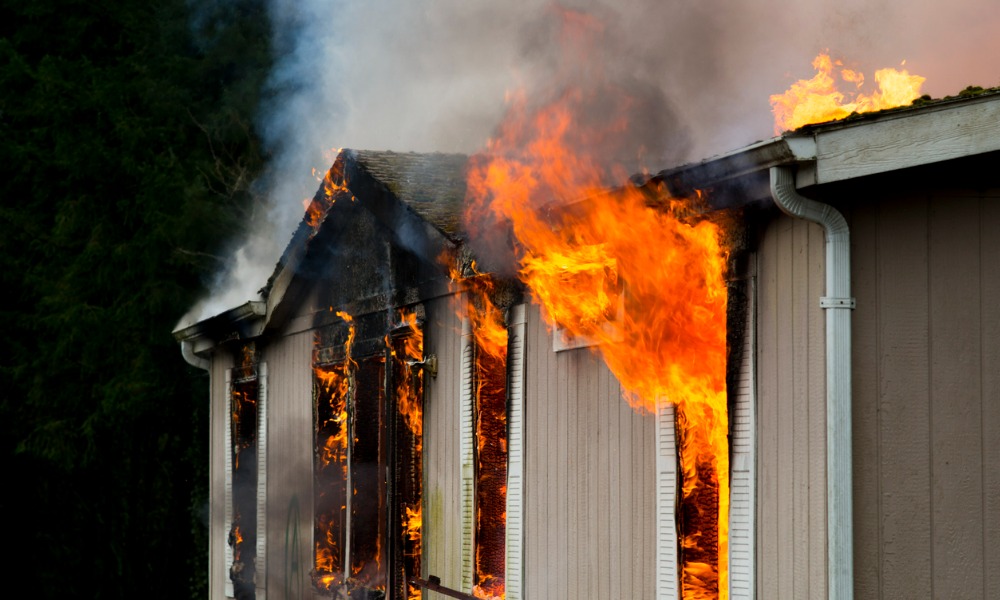Service technician's misconduct creates serious public safety risk in Saskatchewan


A Saskatchewan worker’s misconduct that caused a potentially serious safety hazard to the public and failed to follow established procedures was just cause for discharge, despite the worker’s four decades of discipline-free service, an arbitrator has ruled.
The worker was employed as a service technician for SaskPower, a Crown corporation providing electrical and natural gas service in Saskatchewan, since 1980. The gas distribution arm of SaskPower was separated and became SaskEnergy Incorporated, and the worker continued working for the new company.
The worker had no disciplinary issues over his long career without so much as a warning.
On Feb. 16, 2022, the worker was on call for the area around his home community. That evening, there was a house fire on a First Nation reserve. The natural gas did not ignite and the fire department brought the fire under control, so they weren’t sure if someone from SaskEnergy was needed to deal with the gas pipe and meter.
A short time later, SaskEnergy’s operations head decided that a service technician should check it out, so he called the worker and advised him. SaskEnergy’s dispatcher also called the worker, telling him that the fire was “pretty much out.”
An Ontario mining worker’s downplaying of a safety breach justified his dismissal, an arbitrator found.
Standard process for house fires
The standard process when a fire could impact a gas pipe and meter connection was to shut off and lock the gas connection to the house and remove the risk of gas flaring or exploding by shutting down the gas supply line at a distance from the building. The latter required a contract to bring an excavating machine to access the underground natural gas line.
The worker arrived at the site and reported that the gas pipe and meter had been kept wet by firefighters and they weren’t impacted by the fire. He determined that the matter had been dealt with and returned home.
About six hours later, the police called the SaskEnergy dispatcher to say that the house was on fire again, but the fire department couldn’t return because of a problem with the fire truck. The police said that there was a possibility that the gas pipe and meter could be impacted, so the dispatcher called the worker. However, the worker said there was nothing more he could do without a work order, as that was usually issued before he would go to a site. The dispatcher had not dealt with a second fire call before.
Breaching safety rules is serious, but not always cause for dismissal.
Another technician sent to site
A couple of hours later, early in the morning, the worker called the new dispatcher on duty and recapped what had happened. He also called the operations head, who immediately sent another service tech to the scene and arranged for a contractor to help with shutting down the gas line.
At the scene of the fire, the gas pipe had flared and continued to do so until the gas supply line was blocked off.
SaskEnergy determined that the worker did not follow proper procedure in not responding to reignited fire was gross negligence and disregard for public safety. Management was shocked that the worker would leave a house fire unattended without assessing the state of the gas pipe and meter, due to the risk of gas flaring or an explosion.
SaskEnergy launched an investigation that included interviews with the worker. The worker maintained that “nothing could be done” at the site and said that he should have requested an order, but none was sent by the dispatcher. He said that he felt that the danger would occur later if the house continued to burn. He didn’t acknowledge during the interviews that he should have done things differently.
SaskEnergy felt that the worker did not take responsibility for the incident, as he kept saying that he didn’t have an order and he should have called the operations head to advise. It also viewed the incident as a potentially high risk to public safety.
The Alberta Labour Relations Board upheld the firing of a worker who failed to report a safety incident and lied about it.
Indefinite suspension
On April 19, SaskEnergy dismissed the worker with an indefinite suspension under the collective agreement, which stipulated that such a suspension would be in effect until an investigation and settlement were completed between the company and the union. If a grievance was not filed within seven days, the suspension became a dismissal.
The union grieved the indefinite suspension.
The arbitrator accepted that natural gas can present serious hazards and must be properly handled, which was something SaskEnergy employees know well due to ongoing training and reinforcement. The arbitrator also accepted that the worker was incorrect when he told the dispatcher that nothing could be done when the fire reignited – there was an established procedure to shut off the gas both at the structure and on the gas line some distance away with an excavator.
The arbitrator also found that dispatchers rely on service technicians to guide the process and the preparation of work orders, and had the worker said so that night, a work order would have been issued. As an employee of 42 years, the worker had sufficient expertise to advise the dispatcher and his duty to attend the scene of the fire, said the arbitrator, noting that his speculation that the danger would occur later was “the opposite of a preventative approach.”
The arbitrator noted that the worker’s long, discipline free service weighed in his favour, but it was “unfortunate” that his first disciplinary incident involved “a serious and troubling dereliction of duty.” Despite the worker’s clean record, his “dereliction of duty” and refusal to accept responsibility was serious enough to warrant termination of employment as a proper level of discipline, said the arbitrator in dismissing the grievance.
See Unifor, Local 649 and Sask Energy Inc. (Paul), Re, 2023 CarswellSask 308.





